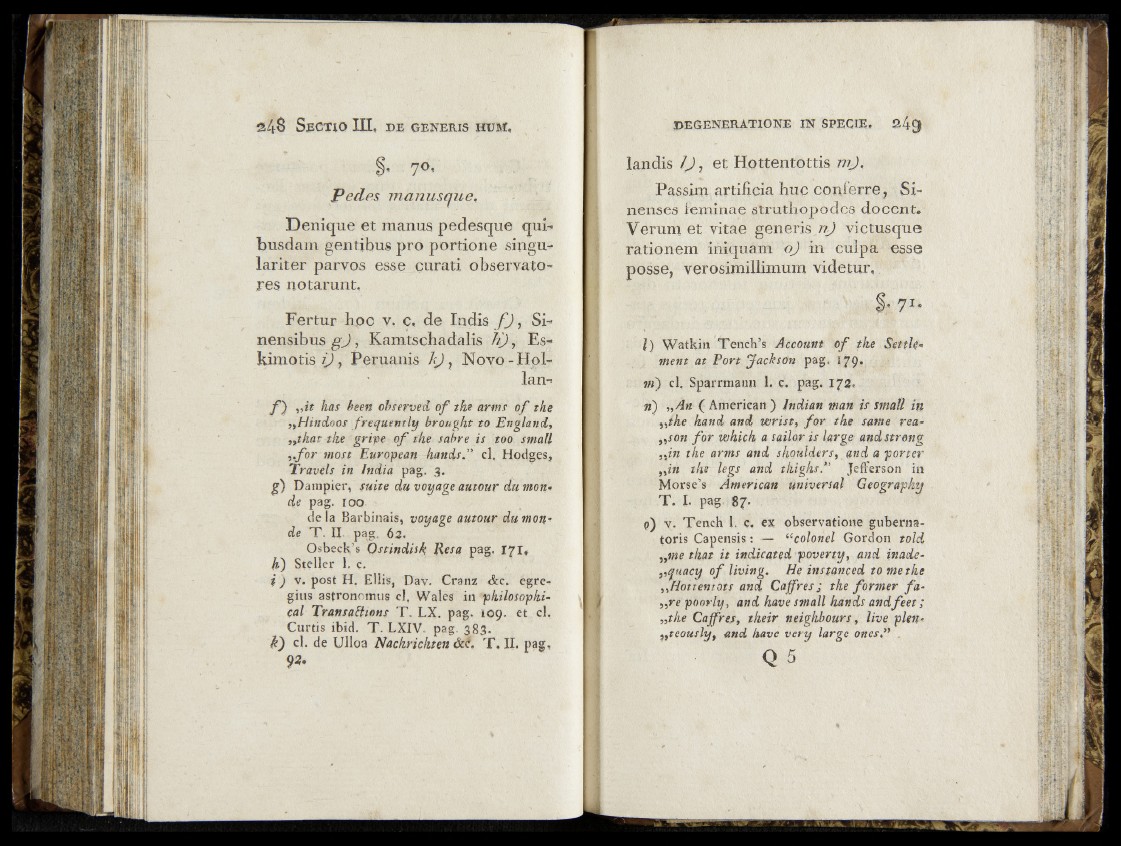
§, 7°<
Pedes manusque.
Deni que et manus pedesque qui-
busdam gentibus pro portione singu-
lariter parvos esse çurati observato-
l'es notarunt,
Fertur hoc v. c, de India f ) , Si-
nensibus g j , Kamtschadalis K), Es-
kimotisz^, Peruanis k) , Novo-Hollanf")
,,it has been observed of the arms o f the
„ Hindoos frequently brought to England,
„that the gripe o f the sabre is too small
»for most European hands ” cl, Hodges,
Travels in India pag. 3.
g) Dampier, suite du voyage autour du mon-
de pag. 100
de la Barbinais, voyage autour du mon*
de T . II. pag, 62.
Osbeck’s Ostindisk Resa pag. 171,
h) Steller 1. ç.
i ) v. post H. Ellis, Dav. Cranz &c. egre-»
gius astronomus cl, Wales iu philosophical
Transactions T , LX. pag. 109. et cl.
Curtis ibid. T . LXIV. pag. 383.
le) cl. de Ulloa Nachrichten ôcé. T . II. pag,
92*
landis l j , et Hottentottis wj,
Passim artificia hue conferre , Sinenses
feminae struthopodes docent.
Verum et vitae generis n) victusque
rationem iniquam oj in culpa esse
posse, verosimillimum videtur,
y i •
l) Watkin Tench’s Account o f the Settlement
at Port Jackson pag. 179,
?«) cl, Sparrmauu 1. e. pag. 172,
n) »An ( American ) Indian man is stnaU in
,,the hand and wrist, for the same reas
o n for which a sailor is large and strong
„in the arms and shoulders, and a porter
„ in the legs and t h i g h s Jefferson in
Morse’s American universal Geography
T . t pag. 87.
q) v. Tench 1. c, ex observatione guberna-
toris Capensis: — “ colonel Gordon told
„me that it indicated poverty, and inadequacy
o f living. He instanced to me the
„Hottentots and Caffres; the former fa-
, ,re poorly, and have small hands and fe e t;
„the Caffres, their neighbours, live plen*
„ teously, and have very large ones.” .
Q 5